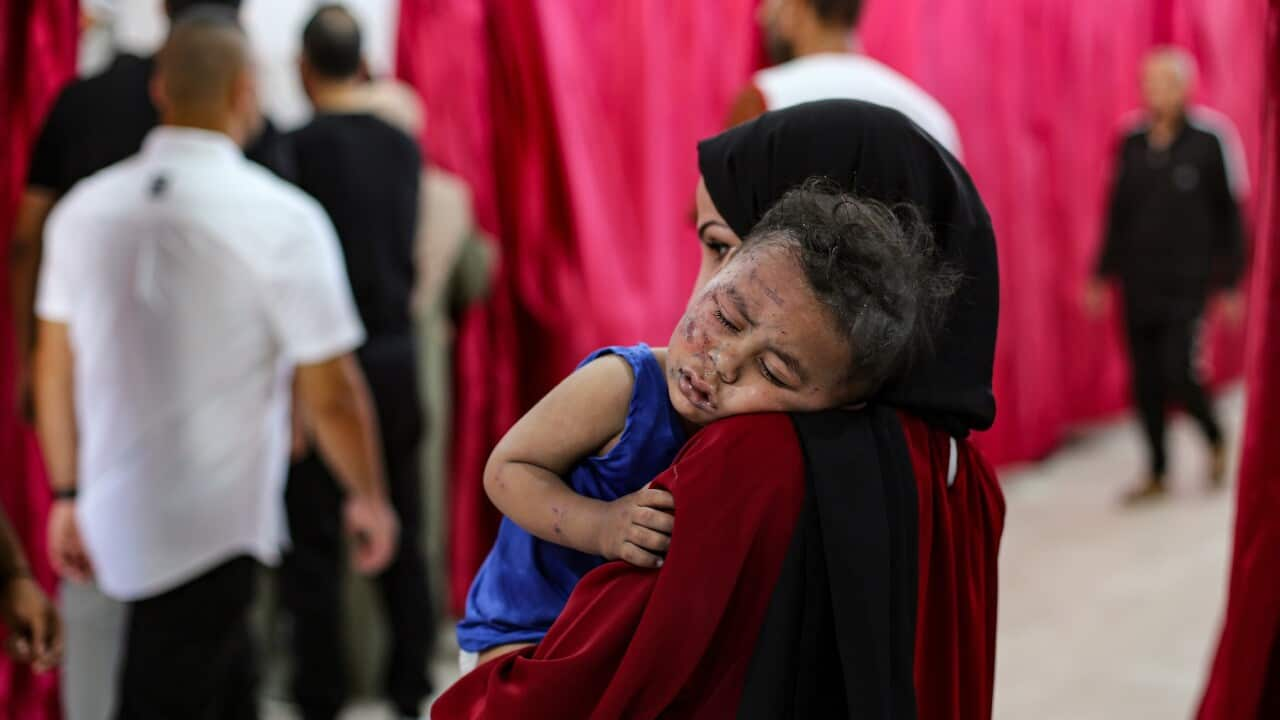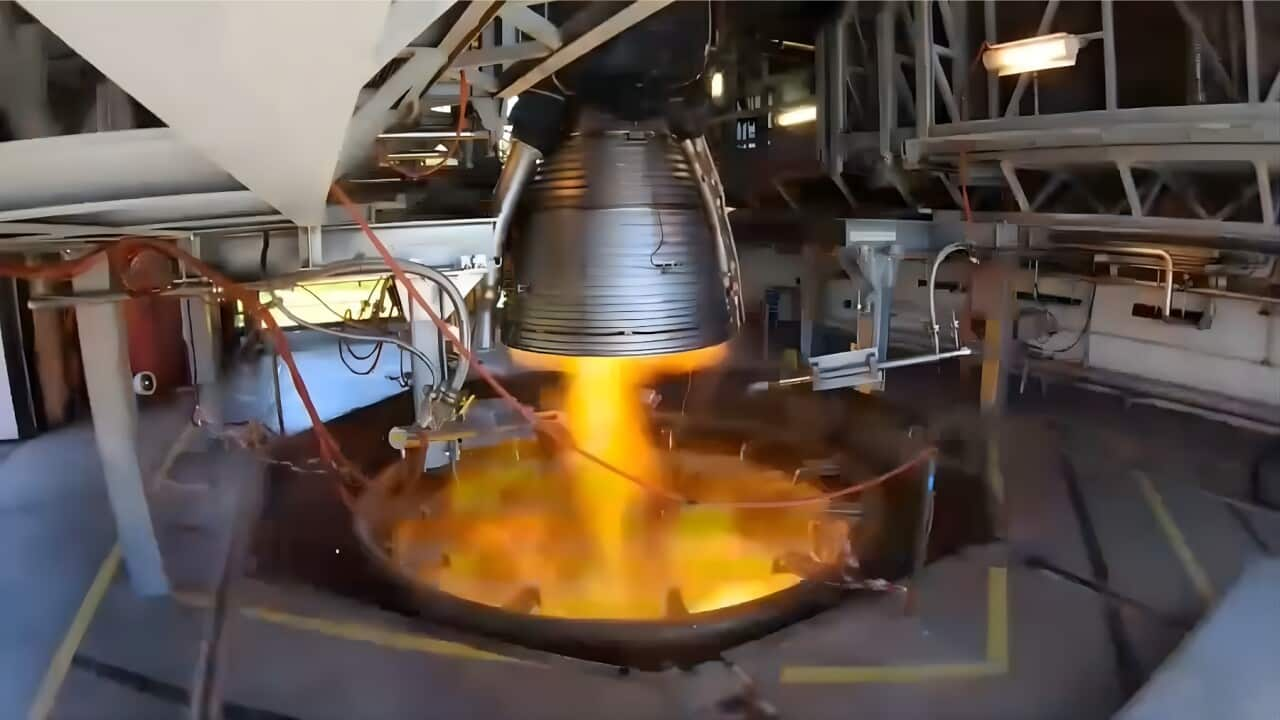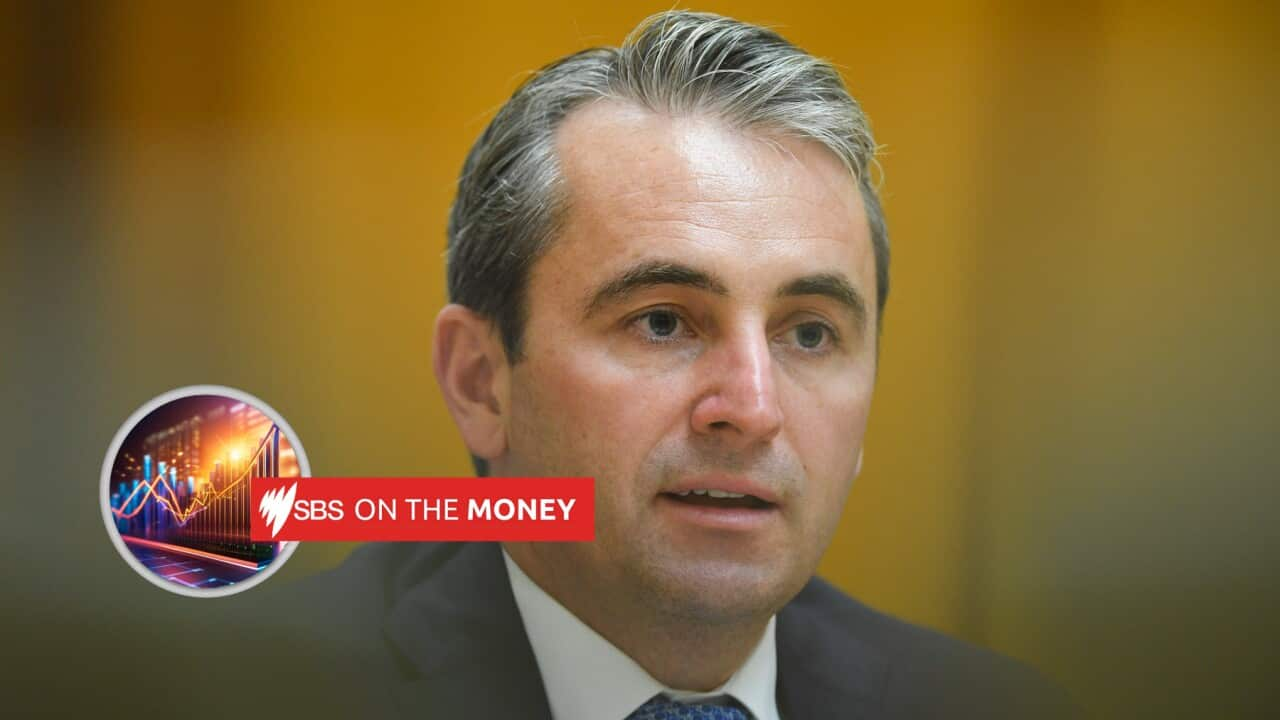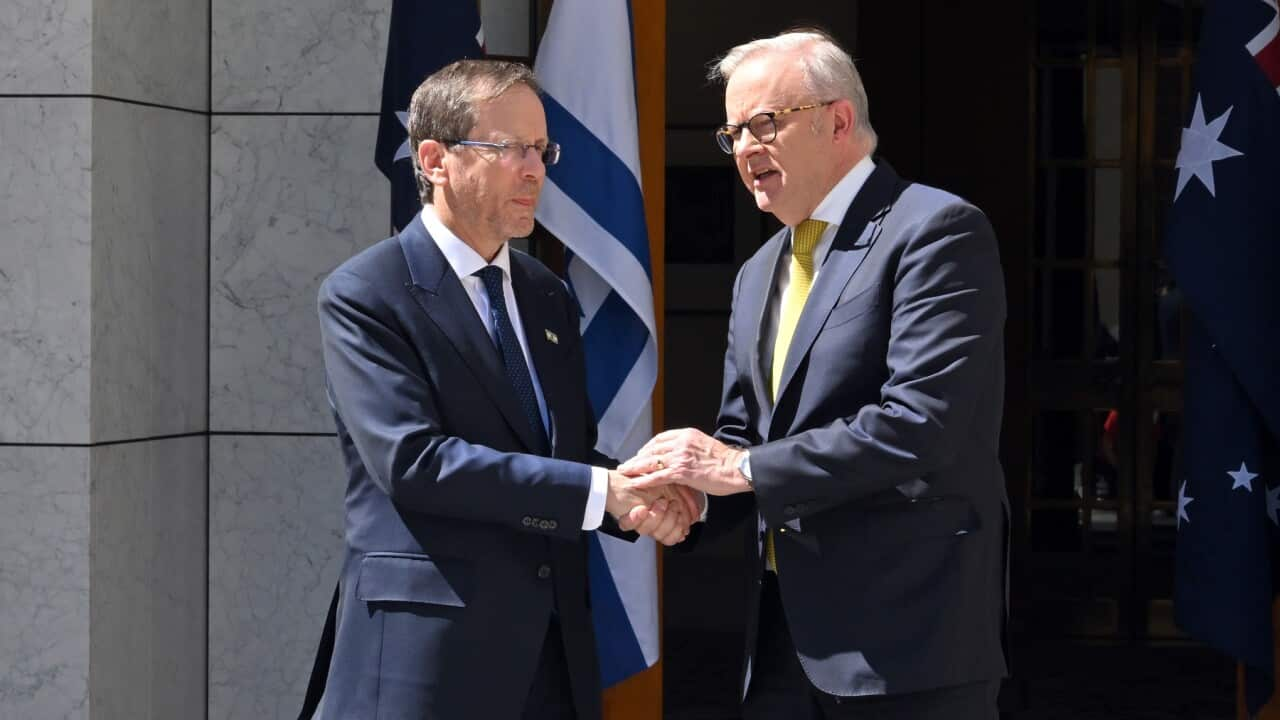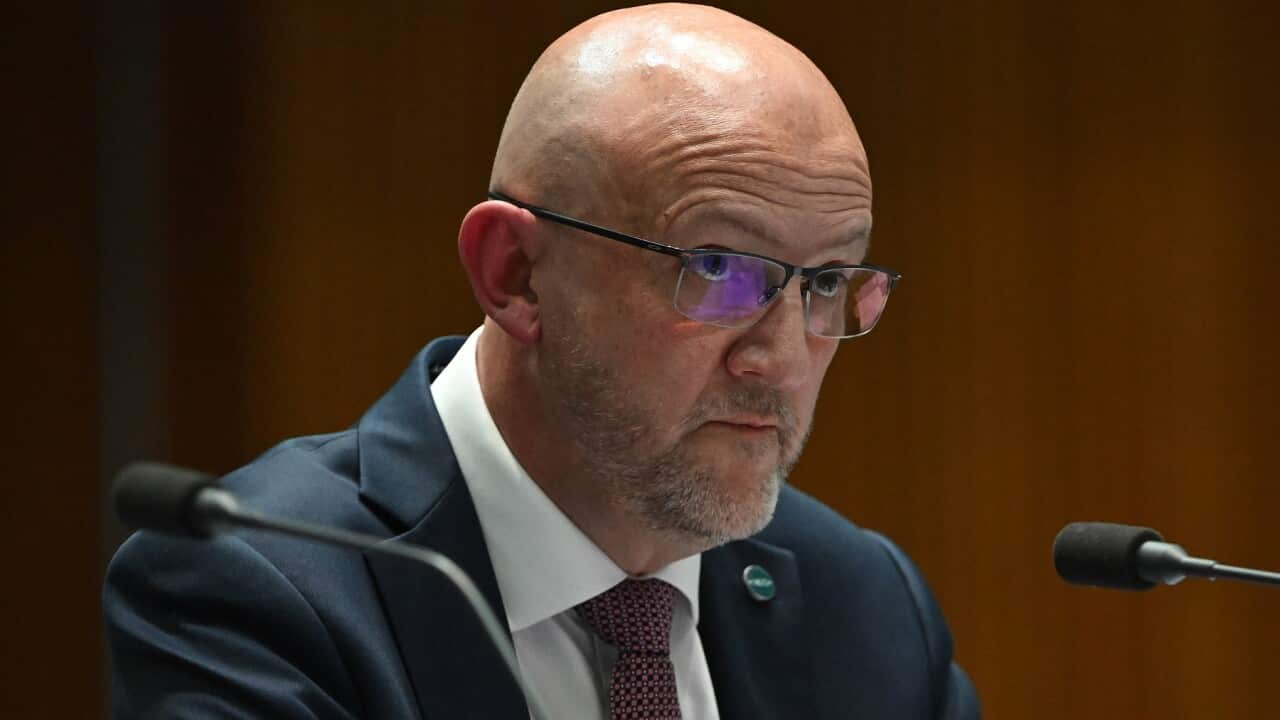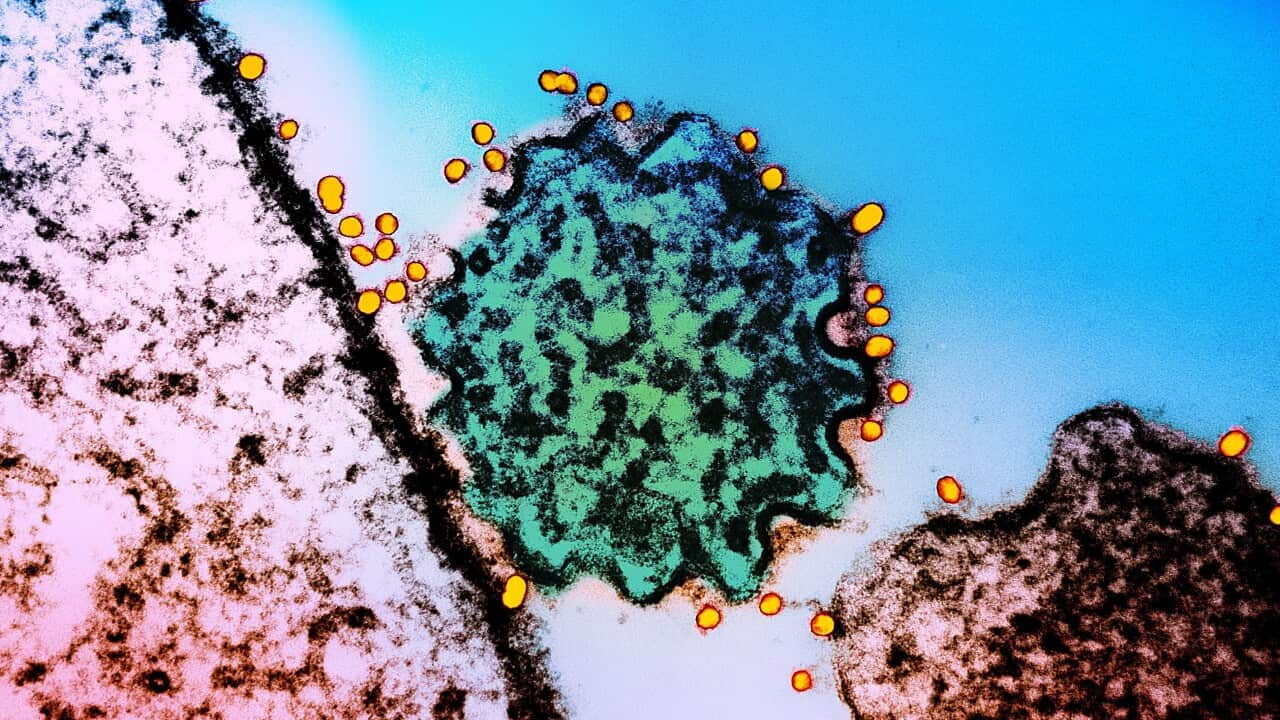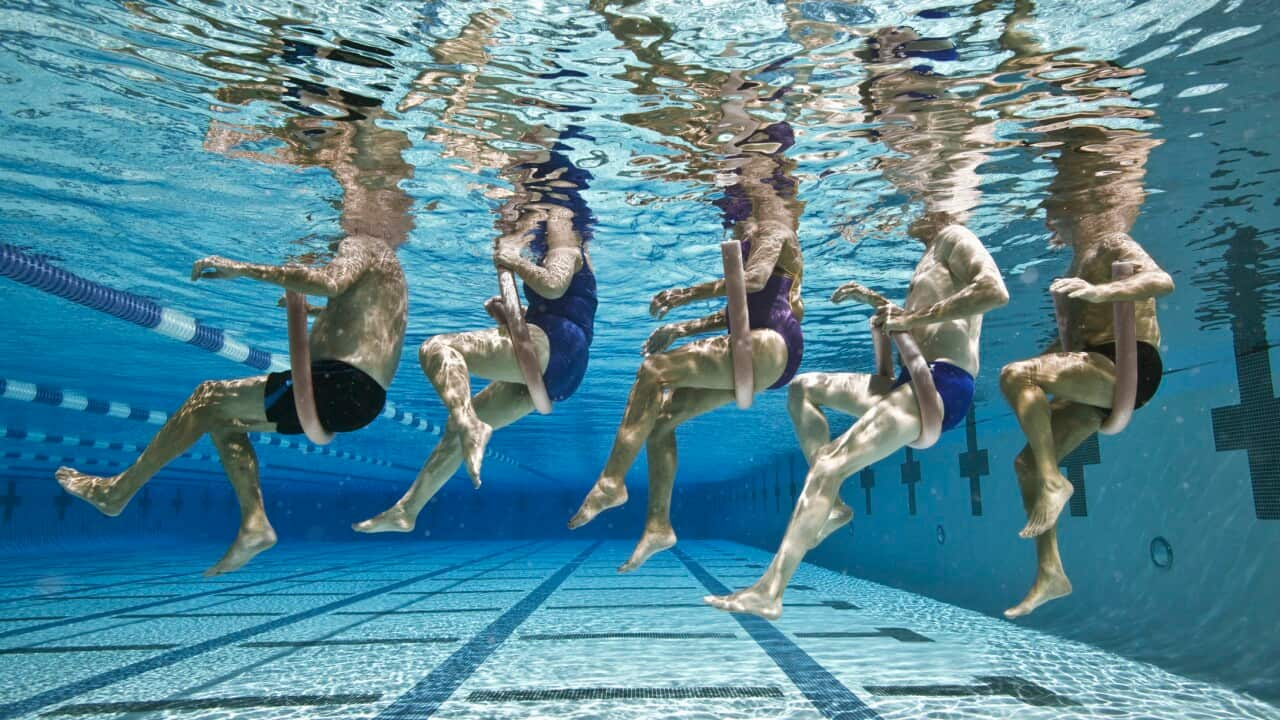Listen to Australian and world news, and follow trending topics with SBS News Podcasts.
Dr Mohammed Mustafa is a British-Australian emergency physician trainee.
Born a Palestinian refugee, his first time visiting Gaza was as a volunteer doctor in June last year.
"It was a very bittersweet moment. It was a sweet moment that I was finally home, but it was also just filled with a lot of despair. You know, within the first hour of me arriving, we just had body bags coming in, and we went to the morgue to help the identification and numbering of the bodies."
Returning to Gaza in March this year, Dr Mo says the health system is in a catastrophic state.
"36 of the 38 hospitals have been either completely destroyed or partially destroyed in Gaza. There are no ventilators in the emergency department that I worked in. There is hardly any medical equipment. Antibiotics are limited. Painkillers are limited. Analgesia is limited. And since this blockade, the already little supply that's there has begun to dwindle, especially with these mass casualty events after mass casualty events. And we don't even have surgical equipment. And a lot of the time when surgeons were operating, while I was there in Gaza, we would be coming in to provide our mobile phones to use as a light for them to operate on."
Five weeks ago, Dr Mohammed Mustafa arrived back in Australia.
Whilst overseas, he built up an online following after choosing to break the rules imposed by aid organisations, and posting videos capturing the reality on the ground in Gaza.
In Canberra, he's met members of parliament, hoping to gain support for an Australian-backed children's hospital to be built in the territory.
"The amount of children that I saw die in Gaza, the amount of children that were in tents with maggots eating their wounds, with children slipping in and out of consciousness, and we didn't even have the equipment to monitor them. We couldn't even allow children to die in dignity. A lot of them were dying on the floor, bleeding out to death. This is why I just felt like we needed to do something practical to help these children. These children are innocent, and it shouldn't be controversial or political to want to help these children."
He's also hoping for a change in the way Australia officially views a Palestinian state.
"I think now is the right moment that not only do we get this hospital into Gaza, but we also recognise Palestine as a state. You know, we already have an embassy here. We have representatives here. It's time that we recognise them, and it's time that we recognise Palestine and give people and Palestinians hope."
Australia is sending representatives to a key United Nations summit next month that some hope could pave the way for recognition of Palestinian statehood.
Australia's Ambassador to the UN, James Larsen, detailed Australia's position earlier this week.
"Like other partners, Australia no longer sees recognition of a Palestinian state as only occurring at the end of negotiations, but rather as a way of building momentum towards a two-state solution. To that end, Australia welcomes the conference's ambition of a time-bound, irreversible pathway towards a two-state solution."
147 of the 193 U-N member states already recognise a Palestinian state.
Australia, the United States, the United Kingdom, Canada, and France are not among them.
France has indicated it will recognise Palestinian statehood soon - and it wants other countries to do the same.
France and Saudi Arabia are lobbying countries including Australia to form an international coalition that will move to recognise Palestinian statehood at the conference they are co-hosting in New York.
The French Government says the conference is focused on the recognition of a Palestinian state, normalisation of relationships in the region with Israel, reform of the Palestinian Authority and the disarmament of Hamas.
A high-level government source has confirmed to SBS News that Australia is intending to send a representative to the meeting, but the delegation won't be announced until the level of leadership from the co-hosts is clear.
Mr Larsen says Australia remains committed to a two-state solution.
"Australia shares the frustration of the great majority of countries more than 77 years since the world adopted resolution 181, a Palestinian state still does not exist. A two-state solution, a Palestinian state alongside the State of Israel, is the only hope of breaking the endless cycle of violence, and the only hope of a just and enduring peace for Israelis and Palestinians alike."
Historically, Western countries have only looked to recognise a Palestinian state at the end of the peace process with Israel, known as the two-state solution.
But Israel rejects the two-state solution, and last year Australian Foreign Minister Penny Wong joined a group of liberal democracies in floating the prospect of recognising a Palestinian state before peace is secured.
Chris Sidoti is an international law expert and long-time advocate for a Palestinian state to be recgonised.
He is also a Commissioner on the United Nations' Independent International Commission of Inquiry on the Occupied Palestinian Territory, including East Jerusalem and Israel.
"Recognition of statehood goes right back to 1947 when the United Nations General Assembly adopted a resolution dealing with the ending of the Palestine mandate that the United Kingdom had held and replacing it with two states living in peace side by side, one Israeli and the other Palestinian. We have seen since soon after that the establishment of the State of Israel and recognition of the State of Israel; we still don't have recognition of the State of Palestine."
He says recognising a Palestinian state is important to reach that two-state solution.
"Recognition is about advancing the two-state approach that was originally adopted way back then, recognising that there are two peoples in two states, because that's their aspiration, hopefully in time living side by side in peace with security and prosperity."
Palestinian statehood is part of the Labor Party's national platform.
"The government's policy is to recognise the state of Palestine, to do so as a priority, but at a time of its choosing. I think what Ambassador Larsen's statement this week indicates is that that time is coming closer."
The United States has consistently used its veto powers in the UN Security Council to block full Palestinian membership and voting rights in the international forum.
At the moment, Palestine has observer status.
Professor Bob Bowker, from the Australian National University, is a former Australian ambassador to Egypt, Jordan, and Syria.
He says the change in position reflects domestic sentiment.
"I think it's primarily a political question, which reflects the fact that within Australia, the political balance has now shifted toward there being a direct recognition of the unacceptability of Israel's behaviour, and the recognition, or the foreshadowed recognition of a Palestinian state, is a symptom of that discontent at both the popular level and also increasingly at the political level."
Hamas and Israel have been in a long-running conflict that escalated into war on October 7 2023 after Hamas-led militants launched a surprise assault on southern Israel, killing 1,200 people and abducting 251 others according to the Israeli government.
More than half the hostages have been returned in ceasefire agreements or other deals; eight have been rescued, and Israeli forces have recovered the remains of dozens more.
Gaza authorities say Israel's retaliatory military offensive has killed around 54,000 Palestinians and destroyed vast areas of the Palestinian enclave, rendering entire neighbourhoods uninhabitable.
Hundreds of thousands of people have been forced to shelter in schools and tent camps for well over a year.
Israeli Prime Minister Benjamin Netanyahu has described the French government's plan to recognise Palestinian statehood as a 'huge prize for terror'.
Alex Ryvchin, from the Executive Council of Australian Jewry, mirrors those concerns.
"It's always been a failed approach, and the ambassador hasn't said anything new. The Foreign Minister articulated a similar vision some months ago, but it's utterly misguided. The only way that there can be peace between the two peoples is through a genuine political process. But the first thing that has to happen is the biggest impediment to peace, which is Hamas and armed terrorism, has to be defeated, and then the two peoples can negotiate a future, determine their own borders and live together in peace. It's what everybody wants, but recognising a Palestinian state, which does not exist in fact, doesn't advance the peace process. It will only force the Israelis to dig in, and it will reward Hamas and the most extreme elements of Palestinian society."
Dr Mohammed Mustafa disagrees.
"Recognising a Palestinian state - that's for the Palestinian people, it's not for Hamas. Hamas are not representative of the Palestinian people. This has been a cause a lot longer than Hamas have existed."
Ambassador Larsen says the Australian government will ensure that Hamas has no part to play.
"Australia has made clear it sees no role for Hamas in a future Palestinian state. Hamas is a terrorist organisation. A Palestinian state cannot be in a position to threaten Israel's security. A durable peace will require a reformed Palestinian Authority, and Australia has committed to support public administration capacity-building."
Although Professor Bowker says that's a challenging thing to achieve.
"I think on the ground, there will be efforts made to present Hamas as having stepped back from a political role in Gaza. Hamas itself has said how it will be willing to avoid having a role in the governance of the territory, although everyone knows that, of course, Hamas will still be the effective power on the ground, so there'll be opportunities to present an outcome in terms that are more palatable to the international community. And we'll go along with that, as I say, because first of all, we need to bring an end to this horrendous onslaught, and we need to get the food aid and other humanitarian relief flowing in, so we'll be prepared to accept at face value assurances that things have changed for the better, even though, in reality, that may not always be the case."
From March 2nd, Israel blocked the entry of medical, fuel, and food supplies into Gaza.
Prime Minister Anthony Albanese voiced his concerns to the President of Israel on the sidelines of the Pope's inauguration.
"Israel's actions are completely unacceptable. It is outrageous that there be a blockade of food and supplies to people who are in need in Gaza. We've made that very clear by signing up to international statements. I made it clear in a discussion that I had with the President of Israel, President Herzog, in Rome just days ago. I made it very clear that Australia finds these actions as completely unacceptable, and we find Israel's excuses and explanations completely untenable and without credibility. People are starving, and the idea that a democratic state withholds supply is an outrage."
After an 11-week blockade, Israel allowed some aid deliveries to resume last Friday after warnings from the United Nations that a quarter of Gaza's population was at risk of famine, and increased international pressure including the threat of sanctions from France, Canada, and the United Kingdom.
But Australia has not threatened sanctions - something Labor backbencher Ed Husic thinks should happen.
"The type of sanctions themselves? That will be up to the Foreign Minister to work with across government. But I think if you see the way in which things are moving, in particular, what the UK, Canada and France signalled last week. I think they are well advanced in their preparations, and we should be prepared to move rapidly should they take those steps."
Mr Ryvchin doesn't think so.
"It would be entirely futile, and again, it plays completely to the agenda of Hamas. It keeps them in power. It keeps them digging in and refusing to surrender. Why are they fighting this war? Why did they declare war on October 7? What is the aim? What are they seeking to achieve? Every day that they fight, they're subjecting both the Israelis and their own people, foremost, to suffering, to hardship, to needless death. If the international community wanted to actually do something for the people of Gaza to end this war and end their suffering, they would unite to tell Hamas to lay down their arms and to surrender immediately and unconditionally."
For Gazans though, Dr Mohammed Mustafa says it isn't too late to help.
"Do you know, it's been almost 600 days of this war, and it's been a very slow it's been very slow from Australia. There's not been enough that's been done. But you know, it's never too late. It's never too late to do the right thing. And you know, this has not been just an Australian problem. It's been a global problem of not responding to this. So I don't want to lay blame just on Australia. I think everyone needs to do more, but definitely Australia can do more, and should do more."
